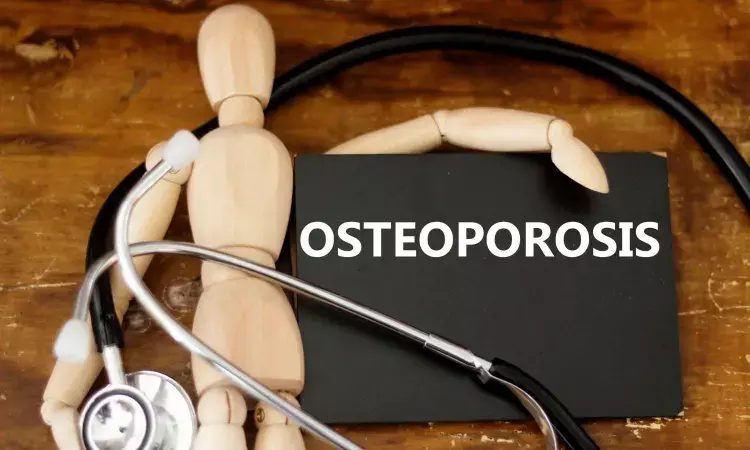- Home
- Medical news & Guidelines
- Anesthesiology
- Cardiology and CTVS
- Critical Care
- Dentistry
- Dermatology
- Diabetes and Endocrinology
- ENT
- Gastroenterology
- Medicine
- Nephrology
- Neurology
- Obstretics-Gynaecology
- Oncology
- Ophthalmology
- Orthopaedics
- Pediatrics-Neonatology
- Psychiatry
- Pulmonology
- Radiology
- Surgery
- Urology
- Laboratory Medicine
- Diet
- Nursing
- Paramedical
- Physiotherapy
- Health news
- Fact Check
- Bone Health Fact Check
- Brain Health Fact Check
- Cancer Related Fact Check
- Child Care Fact Check
- Dental and oral health fact check
- Diabetes and metabolic health fact check
- Diet and Nutrition Fact Check
- Eye and ENT Care Fact Check
- Fitness fact check
- Gut health fact check
- Heart health fact check
- Kidney health fact check
- Medical education fact check
- Men's health fact check
- Respiratory fact check
- Skin and hair care fact check
- Vaccine and Immunization fact check
- Women's health fact check
- AYUSH
- State News
- Andaman and Nicobar Islands
- Andhra Pradesh
- Arunachal Pradesh
- Assam
- Bihar
- Chandigarh
- Chattisgarh
- Dadra and Nagar Haveli
- Daman and Diu
- Delhi
- Goa
- Gujarat
- Haryana
- Himachal Pradesh
- Jammu & Kashmir
- Jharkhand
- Karnataka
- Kerala
- Ladakh
- Lakshadweep
- Madhya Pradesh
- Maharashtra
- Manipur
- Meghalaya
- Mizoram
- Nagaland
- Odisha
- Puducherry
- Punjab
- Rajasthan
- Sikkim
- Tamil Nadu
- Telangana
- Tripura
- Uttar Pradesh
- Uttrakhand
- West Bengal
- Medical Education
- Industry
US Preventive Services Task Force Recommends Osteoporosis Screening for Women 65 and Older to Prevent Fractures

USA: The US Preventive Services Task Force (USPSTF) has released updated recommendations for osteoporosis screening aimed at preventing osteoporotic fractures in adults aged 40 and older, with a particular focus on women aged 65 and older, and postmenopausal women at increased risk. The recommendation statement was published online in the Journal of the American Medical Association (JAMA) on January 14, 2025.
Osteoporotic fractures can lead to severe consequences, including psychological distress, subsequent fractures, loss of independence, a reduced ability to perform daily activities, and even death. The USPSTF's systematic review highlights the importance of identifying individuals at risk of these fractures to help reduce the morbidity and mortality associated with them.
The USPSTF has concluded with moderate certainty that screening for osteoporosis provides a moderate net benefit in preventing osteoporotic fractures in women 65 years and older. For postmenopausal women under the age of 65, the benefits are also moderate if they are at an increased risk for osteoporosis, as determined by a clinical risk assessment. These recommendations are based on a thorough evaluation of the available evidence regarding the harms and benefits of screening in these populations. However, the evidence concerning the balance of benefits and harms of screening for osteoporosis in men remains insufficient, and the USPSTF has stated that it cannot determine whether the benefits outweigh the harms for this group.
The findings highlight a significant difference in the prevalence of osteoporosis between men and women. According to data from the National Health and Nutrition Examination Survey, osteoporosis affects 12.6% of individuals aged 50 or older in the USA, with the prevalence being significantly higher in women (19.6%) compared to men (4.4%). Among individuals aged 65 and older, the prevalence increases to 27.1% in women and 5.7% in men. Despite the lower overall prevalence in men, osteoporosis and fragility fractures contribute to excess mortality in men compared to women.
In clinical practice, it is important to identify those at risk of osteoporotic fractures early on, as osteoporosis can go undiagnosed until a fracture occurs. The USPSTF recommends that women aged 65 and older, as well as postmenopausal women at increased risk, undergo screening for osteoporosis. Those found to have osteoporosis should be further evaluated, counseled, and, if appropriate, managed with evidence-based interventions to prevent fractures.
While the screening guidelines emphasize women, it is worth noting that osteoporosis and fragility fractures in men share similar risk factors, including advanced age, low body mass index (BMI), excessive alcohol use, smoking, chronic corticosteroid use, prior fractures, falls, and certain medical conditions such as hypogonadism and diabetes. Despite the evidence on the potential for harm from screening in men being limited, it is clear that clinical decision-making should carefully consider the individual risks and benefits when screening this group. Current guidelines on osteoporosis screening in men vary, with some recommending it for men over 70 years, while others do not have clear guidelines or suggestions against it.
The updated USPSTF recommendation emphasizes the importance of timely screening, particularly for women at higher risk, to prevent the significant consequences of osteoporotic fractures and improve overall health outcomes.
Reference:
US Preventive Services Task Force. Screening for Osteoporosis to Prevent Fractures: US Preventive Services Task Force Recommendation Statement. JAMA. Published online January 14, 2025. doi:10.1001/jama.2024.27154
Dr Kamal Kant Kohli-MBBS, DTCD- a chest specialist with more than 30 years of practice and a flair for writing clinical articles, Dr Kamal Kant Kohli joined Medical Dialogues as a Chief Editor of Medical News. Besides writing articles, as an editor, he proofreads and verifies all the medical content published on Medical Dialogues including those coming from journals, studies,medical conferences,guidelines etc. Email: drkohli@medicaldialogues.in. Contact no. 011-43720751


